On November 25, European leaders and ambassadors paid tribute on the 90th anniversary of the Holodomor (lit. “death by hunger”) to the millions of victims of the Stalin-induced famine in Soviet Ukraine (1932-1933) that claimed the lives of millions of Ukrainians. In the words of Estonian Prime Minister Kaja Kallas: “Russia hasn’t changed. It wages a genocidal war against Ukraine today.”
Kallas’ pronouncement doubtless is not appreciated sufficiently in the West. “We see in the events in Ukraine our own history unfolding,” she insists — a history that “our grandmothers and grandfathers actually suffered.” Therefore, “it is our duty to spare the people of Ukraine from those atrocities that our own people went through. My own mother was deported to Siberia when she was 6 months old.”
November represents the year-and-three-quarters mark of the war in Ukraine. No one would have thought it possible that this former Soviet satellite state of just over 40 million people, whose “sovereignty” and “territorial integrity” were acknowledged in 1994 and whose parliament approved a constitution in 1996, would have survived nearly two years of bombing and attempts at obliteration by barbaric Russian forces. Given Ukraine’s remarkably stubborn resistance to this wholly unjust war, perhaps we have become dull to the war’s meaning and global importance.
Where the war is being covered in news and analysis, there is no mention whatsoever of the 1994 accord that in fact “promised” Ukraine’s independence. I refer here to the Budapest Memorandum (BM), signed by four nations – Russia, Ukraine, Great Britain, and the United States. At the time, Ukraine was home to the world’s third-largest nuclear arsenal; as part of the BM accord, Ukraine agreed to relinquish this arsenal in exchange for its independence. Therewith the signatories agreed to “respect the independence of the existing borders of the Ukraine.”
Important questions confront us in the West – particularly Great Britain and the U.S. Was the BM a political or a moral commitment on the part of the U.S. as a signatory? Was it both? How, then, do we as a signatory to this accord honor that commitment? Or are we free simply to forget it, walk away, and allow Ukraine – on her own – to disappear? Vladimir Putin is committed to a drawn-out war; he knows we lack resolve. The current stalemate only emboldens the Russian despot.
Surely, in 2023 many Americans ask why the U.S. should be concerned about involvement in a nation 5,000 miles away in which we (supposedly) have no direct political or military interests. Let us take care of more pressing matters here at home, and now, more immediately, in the Middle East. But U.S. President Biden, addressing Indo-Pacific region leaders in May of last year, acknowledged that the U.S. would involve itself directly and militarily in Taiwan, were China intent on denying the island’s sovereignty by force.
In the week following the outrage of Hamas’s crimes against humanity, President Biden declared the U.S. commitment to “stand with Israel.” But in connecting the dots between Israel and Taiwan, we shall need to start with Ukraine, whose sovereignty and territorial integrity the U.S. assured three decades ago. The growing global disorder, it goes without saying, is in part a result of the U.S.’s shameful withdrawal from Afghanistan, which has served to embolden all rogue regimes to be more aggressive and exploit American weakness. But Afghanistan was only emblematic. As former Secretary of Defense Robert Gates has observed, the U.S. finds itself in a uniquely treacherous position, facing aggressive adversaries yet without the unity and strength to deter them.
It is surely just and fitting to press the logic of Biden’s previous public statements concerning Taiwan and Israel and apply them to Ukraine, whose very sovereignty and territorial integrity the U.S. promised to protect. What has released us, politically or morally, from this obligation?
Published comments by Kremlin advisors indicate that as early as 1997 war was predicted, should NATO expand and include Ukraine within its orbit. And indeed in 2014 Putin decided to annex Crimea and wage war through Russian proxy elements in eastern Ukraine, the beginnings of which can be traced to 2008. Clearly Putin was emboldened by the West’s non-response in 2014, as well as by U.S. retreat from Afghanistan. Moreover, Putin has made quite clear, in public comments both past and present, that Ukraine represents a war against the West.
We in the West forget – or ignore – the fact of those public proclamations: namely, were Ukraine to seek NATO association, Ukraine would exist no more. Recall, in this regard, the number of former Soviet satellite states – Poland, the Baltics, Romania, Bulgaria, the Czech Republic, Slovakia, and Slovenia – which have become NATO members. This is truly galling to Putin, who publicly has called the break-up of the Soviet empire as “the greatest geopolitical catastrophe” of the 20th century.
The need for a realistic and responsible foreign policy on the part of the U.S., with a deterrent threat, cannot be overstated. The U.S. and Western nations have naively engaged in a policy of appeasement for too long, and the truth is that without the U.S. Europe will not provide Ukraine with what she needs to win the war. Today, we are faced with the undeniable fact that the Cold War never ended; it only assumed new proportions while we slept.
Ukrainian President Zelensky has described Russia as “the biggest terrorist organization in the world.” Such a claim, it needs emphasizing, is no exaggeration, given two disturbing realities. One is the massive number of war crimes committed since the beginning of the war, with no international authority or regulations in place to monitor or prosecute such crimes. The second is Russia’s aggressive and perverting global influence – in South America, the Middle East, Africa, and Asia. Tragically, rogue regimes like Iran and Russia continue to wreak havoc across the world. We are being forced to rethink and reaffirm the intellectual foundations of Just War Theory formed amidst the Cold War necessary to counter both the conventional and nonconventional menace.
The fear of “escalation,” characteristic of not only President Biden but virtually all Western leaders, plays perfectly into the hands of Putin, the former KGB operative, who exploits the West’s self-deterrence with both cunning and barbarism. And precisely this is one of the striking features of our caution: not deterrence of evil but self-deterrence in the face of evil.
But as NATO’s Secretary-General Jens Stoltenberg observed at the Munich Security Conference earlier this year, “There are no risk-free options.” The “biggest risk of all,” he warned, “is if Putin wins.” That will make the world “more dangerous,” and us “more vulnerable.”
Stoltenberg is right. Just as there was no risk-free option in resisting Hitler and geopolitical evil in the mid-20th century, there is none today. Rogue and totalitarian regimes are taking notes. Is there risk or reward in unjust aggression? The lesson will reverberate around the world. But the only lesson that matters is this: that the invasion was a mistake and that Ukraine has a right to exist. At stake is not merely democracy but human dignity and civilization. Ukrainians are the frontline of the struggle for the civilized world.
Several months into the war, Stoltenberg publicly praised Ukraine for its resilience, saying that it was possible for Ukraine to win the war. A year and a half later, we may acknowledge that in truth this prognostication has less to do with Ukraine’s resolve than with ours. Can the U.S. and other leading NATO members give her what she desperately needs? Can we help her not merely to survive (a second brutal winter) but to win a wholly unjust war which she did not choose but which portends future socio-political evil on a global scale? Realistically, winning the war means three things – (1) retaining control/sovereignty of its internationally recognized borders, (2) safety and security from terrorist attacks, and (3) justice for the untold number of victims of the war – all of which are basic rights belonging to any nation.
Stoltenberg was right: there are no risk-free options. The greatest risk of all, indeed, is if Putin wins, which will make the world far more dangerous and far more vulnerable. Should we not rise to confrontation in the face of unjust war in Ukraine now, we encourage Russia’s miscalculation and even greater Russian atrocity in the next three to five years. But, we also encourage every tyranny and despotic regime around the world – something America can ill afford at this time of concentric crises. The Budapest Memorandum represented America writing a check to Ukraine we did not expect to be cashed; but even if the cost of aiding Ukraine is high, the cost of not may be still yet higher.
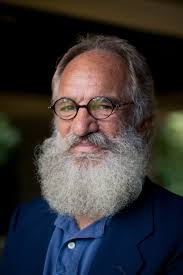

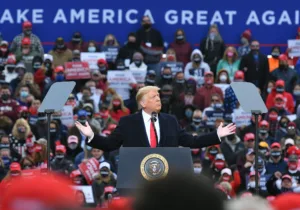
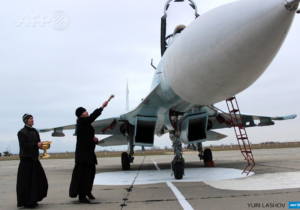
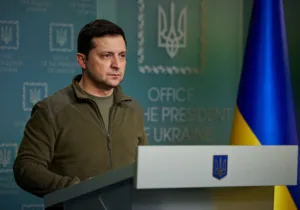
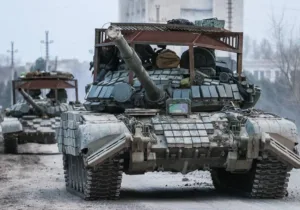

 Sponsor a student for Christianity & National Security 2024
Sponsor a student for Christianity & National Security 2024